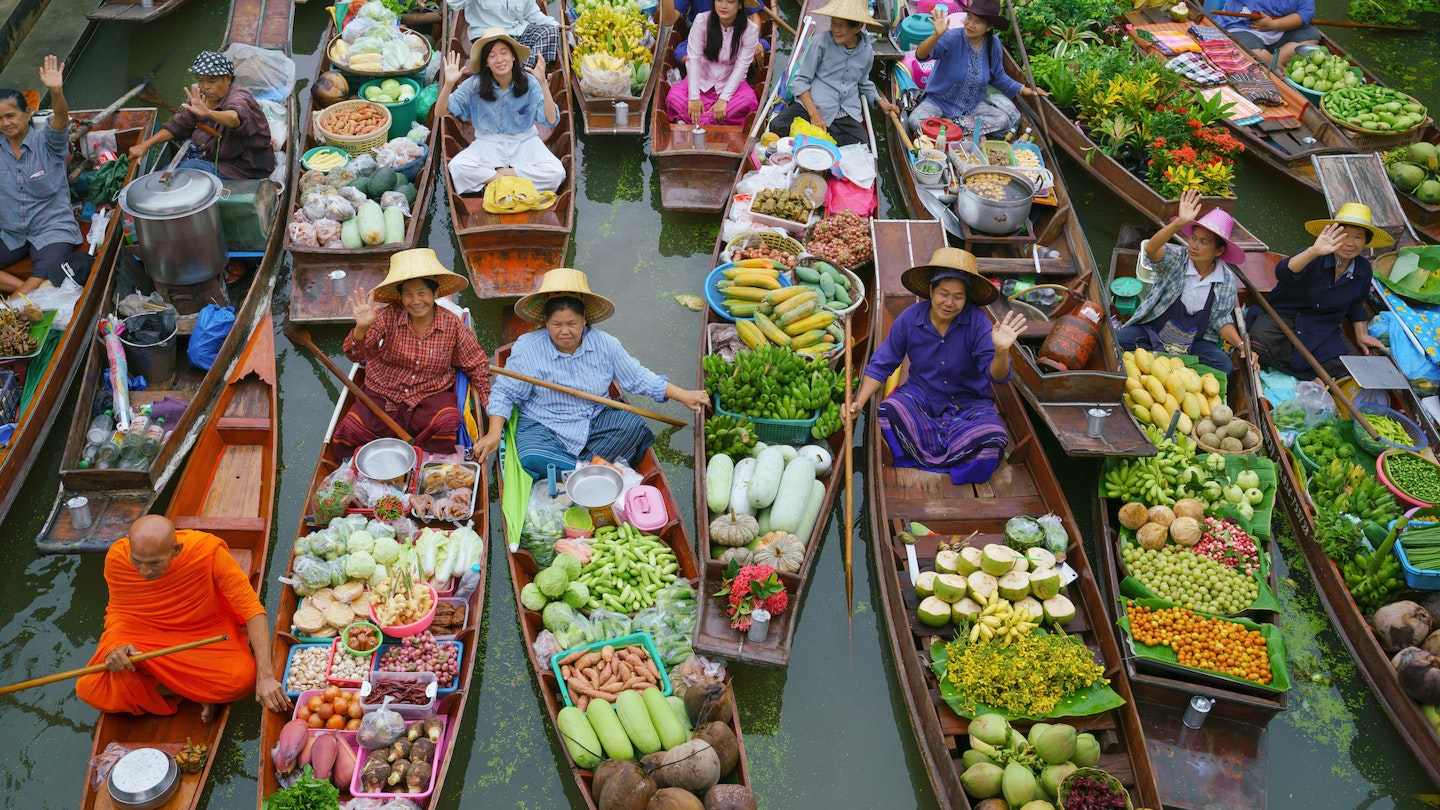Essential Travel Tips for Thailand
Thailand has a deserved reputation as one of the easiest places to travel in Asia. There is an amazing amount to see, hassles are limited, English-language signs and menus are commonplace, and you can get around easily at almost any time of day or night. However, first-time visitors should be aware of some important tips to enhance their experience.
1. Rainy Season Varies by Geography
The June to October rainy season brings heavy showers and regular storms to northern, central, and southwestern Thailand, creating hazardous conditions for travel by sea. Conversely, the southeast coast and the Gulf of Thailand experience rainfall slightly later, from October to December. If you plan to visit during this time, it would be wise to pack wet weather gear.
Traveling during the rainy season can mean lower prices and smaller crowds; however, some accommodations may close and many island ferries could stop running.
2. Get the Recommended Vaccinations
Most health professionals recommend vaccinations against tetanus and hepatitis A. Additionally, consider a rabies vaccination, as dogs, cats, and monkeys can carry this viral disease. Malaria is present along the borders with Laos, Cambodia, Myanmar, and Malaysia. If visiting these areas, you can use anti-malarial prophylaxis or take precautions to avoid mosquito bites.
3. Plan Your Must-Do Activities
If you have your heart set on a specific activity such as a boat journey, train trip, or trek, it is advisable to plan and potentially book these ahead of time, particularly during the busy tourist seasons from November to March or during any religious holidays.
During the rainy season, it is also beneficial to confirm whether places are actually open before setting off.
4. Know the Etiquette When Greeting People
The standard greeting in Thailand is the wai—a respectful dip of the head while holding your hands together in front of your chest. It is customary not to initiate a handshake unless the other person does so first. If invited into a Thai home, remember to remove your shoes before entering and avoid pointing your feet at anyone.
5. Be Respectful of Buddhism
With 95% of Thais identifying as Buddhists, the religion is central to daily life in Thailand. Thus, it is crucial to remove your footwear before entering any Buddhist structure and to wear modest clothing that covers the shoulders and legs. Always avoid pointing your feet at any Buddhist images or monks and refrain from touching Buddha statues on the head.
6. Dress Modestly
Thais typically wear outfits that do not reveal much skin. While swimsuits are acceptable at the beach, it is best to cover up with a sarong or loose-fitting pants when away from the sand, especially at religious sites. Furthermore, topless sunbathing is frowned upon.
7. Respect for the Monarchy
Respect for the Thai monarchy is paramount, and blatant disrespect can lead to severe penalties. Never speak ill of the king or the royal family, including their images found on currency.
8. Dining Customs
When eating out in Thailand, meals are typically served simultaneously and placed in the middle of the table for sharing. Surprisingly, chopsticks are not common, as traditional utensils are a spoon and a fork. Sticky rice is often eaten using fingers.
9. Understanding Vegetarian Options
In Thailand, fish sauce, oyster sauce, and eggs are prevalent in many dishes. To ensure a vegetarian meal, consider dining at Indian-owned restaurants or those serving vegetarian Buddhist cuisine. When in doubt, inquire about the ingredients in your food.
10. Health Risks: Stomach Bugs and More
The most common issue travelers face in Thailand is stomach ailments. To mitigate risks, avoid tap water, practice hygiene before meals, and be cautious about ice and unwashed fruits. If health complications arise, it is best to visit private hospitals in larger cities.
Mosquito bites can lead to infections, so bringing repellent and using mosquito nets is wise. Rabies is also a concern; always seek medical care if bitten by an animal.
11. Avoid Drugs in Thailand
While marijuana and hemp were recently decriminalized, possession of illicit drugs can lead to severe consequences, including lengthy prison sentences. It is essential to check the legality of any prescription medication before traveling to Thailand.
12. Be Wary of Inflated Tourist Prices
Though Thailand is generally easy to navigate, tourists may encounter inflated prices for various services. It is advisable to ask locals about appropriate fare rates for tuk-tuks and taxis to avoid being overcharged.
13. Awareness of the Sex Industry
Travelers, especially single men, may encounter the local sex industry. It is crucial to be prepared to refuse unwanted advances firmly and note that some establishments may serve as fronts for sex work.
14. Stay Informed About Protests
Thailand experiences frequent political protests. It is wise to monitor local news for any potential unrest and to avoid areas where protests are occurring.
15. Travel Warnings for Southern Thailand
The deep south of Thailand has a history of unrest and is often advised against for travelers. Stay informed of local advice if you plan to venture into districts known for conflict.
16. Scooter Rental Safety
Many travelers rent scooters or motorcycles in Thailand. Ensure your license permits you to operate these vehicles, wear a helmet, and confirm that the rental includes liability insurance, as accidents can occur frequently.
17. Follow Local Advice During Natural Disasters
Thailand is susceptible to natural disasters. Always heed official warnings regarding earthquakes, floods, or cyclones and stay in contact with your embassy for evacuation updates.





